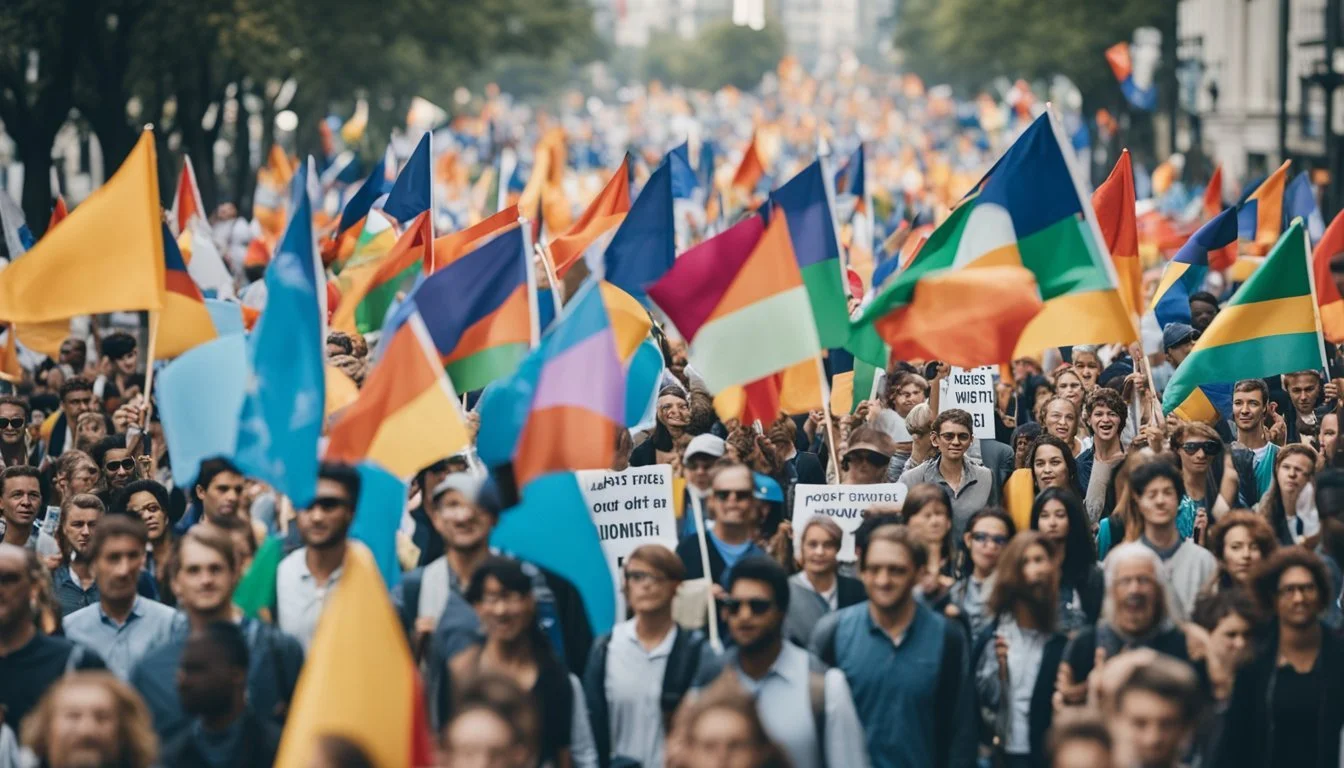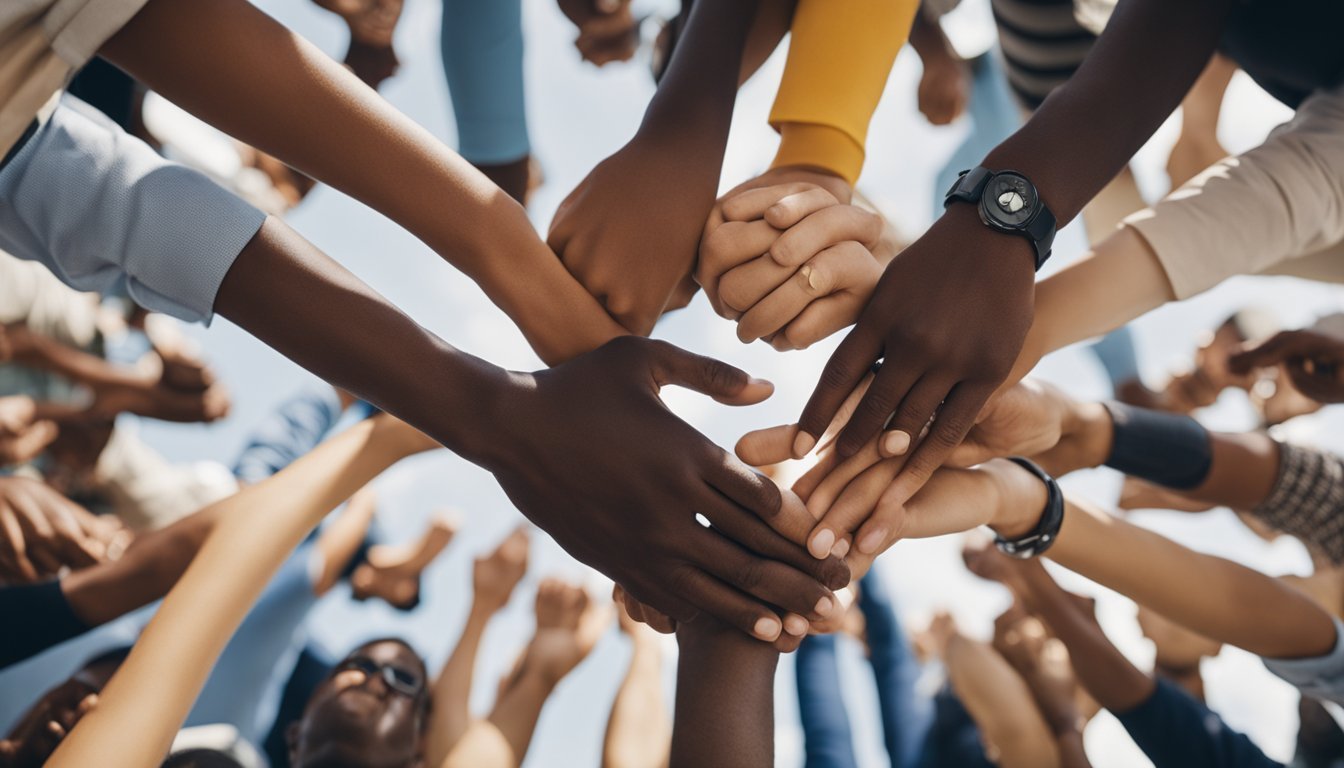4 Documentaries That Examine the Role of Love in Social Movements
Passion as a Catalyst for Change
Documentaries have long been powerful tools for shedding light on social movements and the forces that drive them. These films offer viewers a window into the lives of activists and the communities they serve, capturing the passion and dedication behind efforts to create positive change in the world.
Among the many themes explored in social movement documentaries, love stands out as a particularly compelling and often overlooked aspect. By examining the role of love in activism, these films reveal how deep connections between individuals and their communities can fuel transformative social change. Through personal stories and intimate portraits, they highlight the emotional core of movements that might otherwise be viewed solely through a political lens.
1) 'Hearts and Minds' - Peter Davis (1974)
Peter Davis's documentary "Hearts and Minds" examines the complex social and emotional aspects of the Vietnam War. The film interweaves interviews, archival footage, and news clips to present a multifaceted view of the conflict.
Davis explores the human cost of war through powerful personal stories. He interviews American veterans, Vietnamese civilians, and political figures to reveal diverse perspectives on the war's impact.
The documentary challenges the notion of winning "hearts and minds" in Vietnam. It exposes the disconnect between official rhetoric and the realities on the ground for both American soldiers and Vietnamese people.
"Hearts and Minds" won the Academy Award for Best Documentary Feature in 1975. Its unflinching look at war's psychological toll and its questioning of American foreign policy sparked controversy upon release.
The film's title references President Lyndon B. Johnson's strategy but takes on deeper meaning as it probes the emotional and ideological underpinnings of the conflict. Davis's work remains a pivotal examination of war's human dimension.
More information on 'Hearts and Minds' (IMDB)
2) 'The Black Power Mixtape 1967-1975' - Göran Olsson (2011)
'The Black Power Mixtape 1967-1975' offers a unique perspective on the African American civil rights movement. Swedish director Göran Olsson compiled footage shot by Swedish journalists during this tumultuous period in American history.
The film provides an outsider's view of the Black Power movement, capturing key figures and events. It features interviews with prominent activists like Angela Davis and Stokely Carmichael, offering intimate glimpses into their lives and motivations.
Olsson's documentary explores the role of love within the movement, highlighting the deep care activists had for their communities. It shows how this love fueled their fight against injustice and inequality.
The film also examines the broader societal context, including poverty, drug abuse, and systemic racism. It demonstrates how these issues shaped the movement and its goals.
By combining archival footage with contemporary commentary, 'The Black Power Mixtape' creates a bridge between past and present. It invites viewers to reflect on the ongoing struggle for equality and social justice.
3) 'How to Survive a Plague' - David France (2012)
David France's documentary 'How to Survive a Plague' chronicles the early years of the AIDS epidemic and the activism that emerged in response. The film focuses on the efforts of two groups: ACT UP and TAG.
These organizations fought tirelessly to accelerate AIDS research and improve access to treatments. The documentary showcases their innovative tactics, including protests, civil disobedience, and collaboration with scientists.
'How to Survive a Plague' highlights the power of love and community in the face of adversity. It depicts activists supporting each other through illness, loss, and political struggles.
The film's archival footage and interviews reveal the personal stories behind the movement. Viewers witness the courage and determination of individuals fighting not only for their own survival but for the lives of their friends and loved ones.
France's documentary serves as a testament to the impact of grassroots activism. It demonstrates how love and solidarity can drive social change, even in the most challenging circumstances.
More information on 'How to Survive a Plague'
4) 'Crip Camp: A Disability Revolution' - Nicole Newnham & James LeBrecht (2020)
'Crip Camp' chronicles a transformative summer camp for teenagers with disabilities in the early 1970s. The film showcases how the camp fostered a sense of community and empowerment among its attendees.
The documentary highlights the connections formed at Camp Jened and their impact on the disability rights movement. It follows campers as they grow into activists, fighting for accessibility and equal rights.
Directors Nicole Newnham and James LeBrecht, himself a former camper, blend archival footage with present-day interviews. This approach illustrates the long-term effects of the camp experience on individuals and society.
The film demonstrates how the bonds formed at Camp Jened fueled a larger movement for social change. It portrays the power of shared experiences and mutual support in driving advocacy efforts.
'Crip Camp' received critical acclaim for its portrayal of disability activism. It won the Audience Award at the 2020 Sundance Film Festival and was nominated for an Academy Award.
Understanding Love as a Catalyst in Social Change
Love has been a powerful force driving social movements throughout history. It has inspired activists, united communities, and fueled efforts for equality and justice across diverse causes.
Historical Overview of Love-Fueled Movements
The civil rights movement in the United States exemplified love as a catalyst for change. Dr. Martin Luther King Jr. advocated for nonviolent resistance rooted in agape love - a selfless, universal love for humanity. This philosophy united people across racial lines and challenged systemic oppression.
The LGBTQ+ rights movement also harnessed the power of love. The Stonewall riots of 1969 were sparked by police raids on a gay bar, but evolved into a broader fight for the right to love freely. Pride parades and activism centered on love and acceptance have since become global phenomena.
Philosophies of Love in Social Activism
Mahatma Gandhi's concept of satyagraha, or "truth-force," incorporated love as a key element of nonviolent resistance. He believed that love for one's opponents could transform hearts and minds, leading to lasting social change.
Buddhist monk Thich Nhat Hanh developed the idea of "engaged Buddhism," emphasizing compassion and loving-kindness in social activism. This approach influenced many movements, including environmental activism and peace efforts during the Vietnam War.
Feminist theorists have explored the role of love in challenging patriarchal structures. bell hooks argued that love is a verb, requiring action to create justice and equality in relationships and society at large.
Impact of Love on Community Mobilization
Love plays a powerful role in driving social movements and inspiring collective action. It fuels passion, builds solidarity, and motivates people to work together for positive change.
Case Studies of Inspirational Leaders
Martin Luther King Jr.'s philosophy of nonviolent resistance was rooted in love and compassion. His "I Have a Dream" speech emphasized unity and brotherhood, galvanizing the Civil Rights Movement.
Mahatma Gandhi's concept of "satyagraha" or truth-force was based on love for humanity. His peaceful protests against British colonial rule in India inspired millions to join the independence movement.
Nelson Mandela's message of forgiveness and reconciliation after 27 years of imprisonment helped unite post-apartheid South Africa. His approach fostered national healing and social cohesion.
Psychological Insights Into Love-Driven Activism
Research shows that empathy and compassion are key drivers of prosocial behavior. Activists who feel a deep emotional connection to their cause are more likely to persist in the face of adversity.
Love for community can create a sense of shared identity and purpose among movement participants. This strengthens social bonds and increases commitment to collective goals.
Positive emotions like love can broaden people's perspectives and build psychological resources. This allows activists to be more creative and resilient in their approaches to social change.




